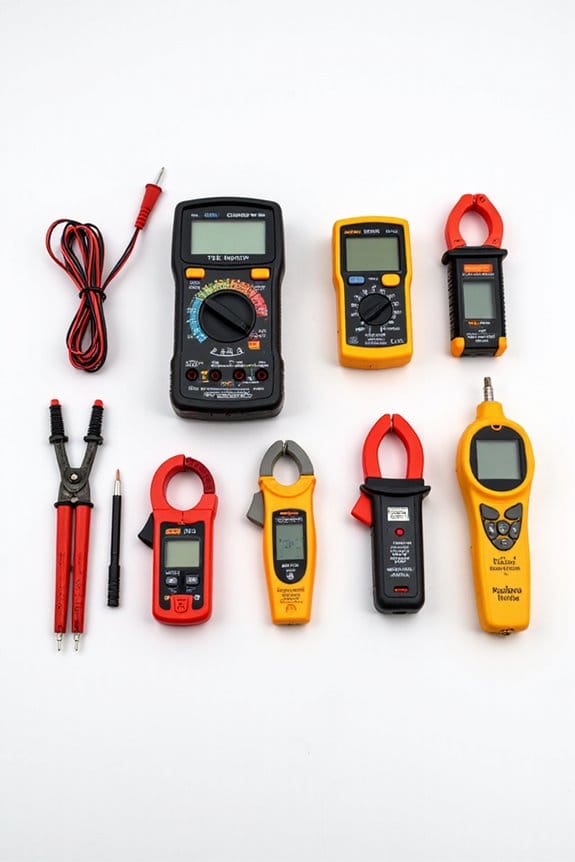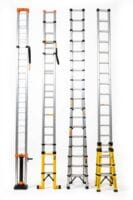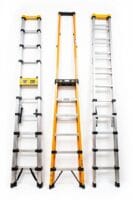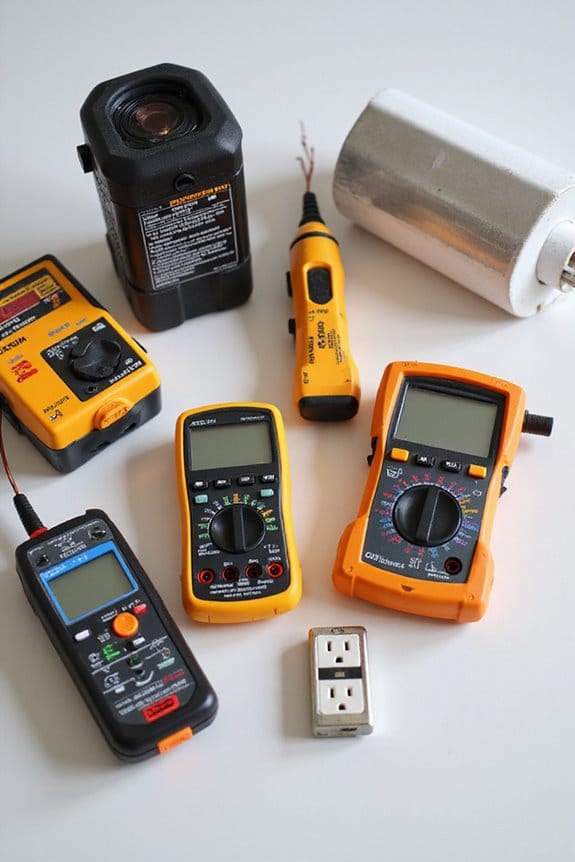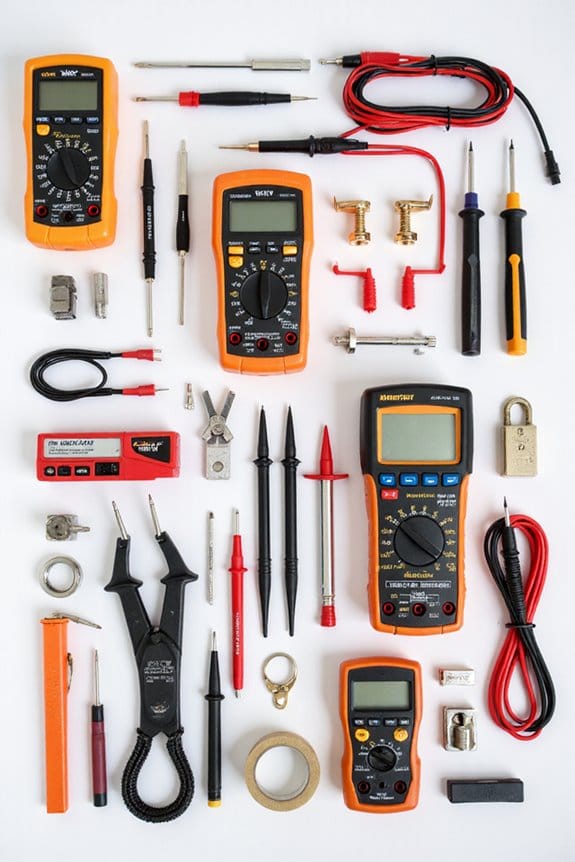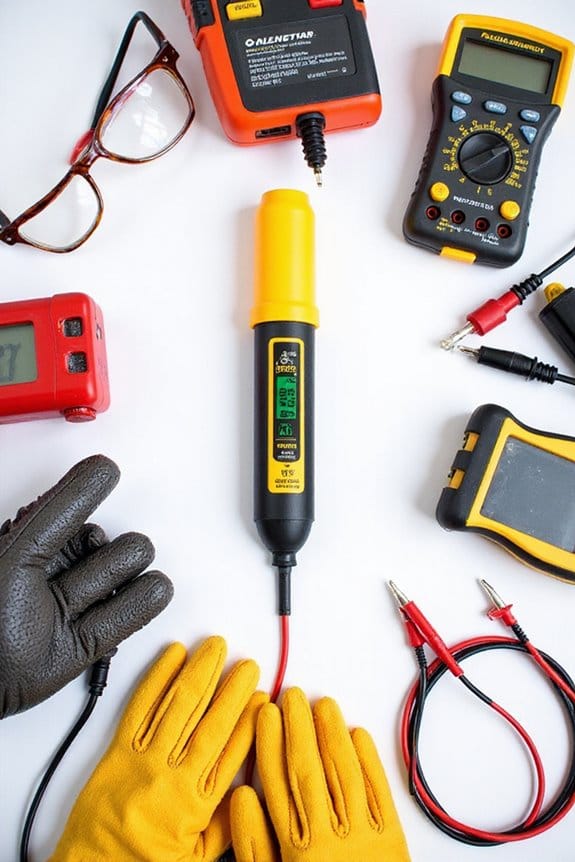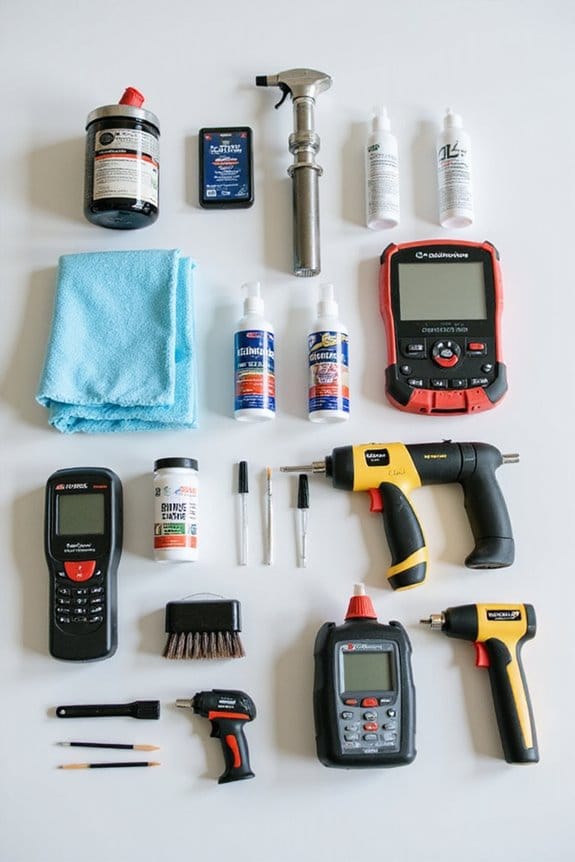When it comes to essential electrical testing tools, I’ve got a solid list for you. First, a multimeter measures voltage, resistance, and current. Next, a non-contact voltage tester lets you check for live wires safely. Clamp meters are great for measuring current without disconnecting anything. Don’t forget insulation testers for checking wire integrity. Thermal imaging cameras are super handy for spotting overheating issues. If you’re curious about more tools, just stick around!
Key Takeaways
- Multimeters are versatile for measuring voltage, resistance, and current, crucial for various electrical projects.
- Non-contact voltage testers ensure safe voltage detection without direct contact with live wires.
- Clamp meters allow for safe current measurement without interrupting the circuit, suitable for both AC and DC currents.
- Insulation testers are vital for assessing insulation resistance, helping to identify potential faults in electrical systems.
- Thermal imaging cameras provide visual insights into overheating components, enhancing preventive maintenance and system reliability.
Multimeters
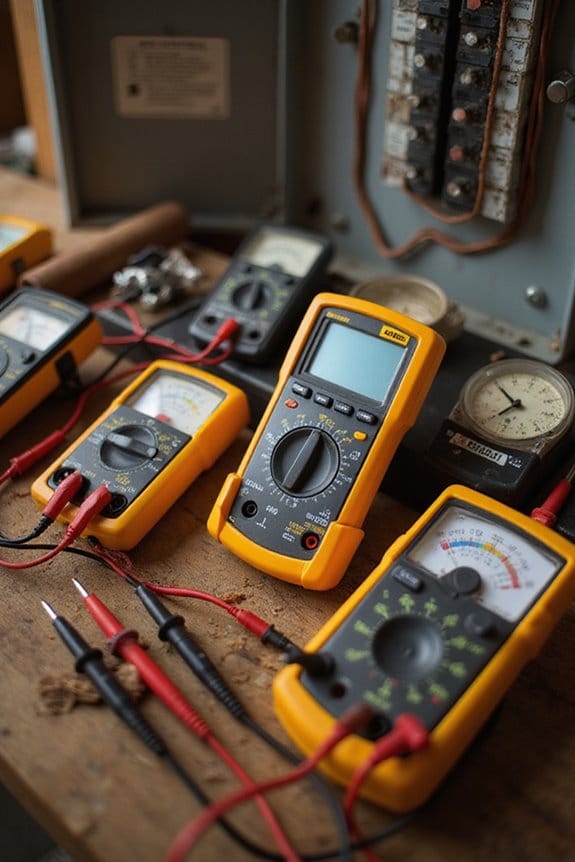
When it comes to tackling electrical projects, having a reliable multimeter is essential. These handy tools measure voltage, resistance, and current, making them perfect for both novices and pros. I’ve found that digital multimeter benefits, like their precision and auto-ranging features, simplify my tasks considerably.
Here’s a quick breakdown:
- Types: You’ve got analog multimeters, which provide great accuracy but can be tricky to read, and digital ones that display clear numbers.
- Functions: They measure AC and DC voltage, resistance, and even current flow.
- Safety: Always check the settings before you start; it saves you from mishaps! Additionally, safety features like auto shutoff are essential for avoiding potential hazards during testing.
Trust me, investing in a good multimeter makes all the difference in your electrical adventures!
Non-Contact Voltage Testers
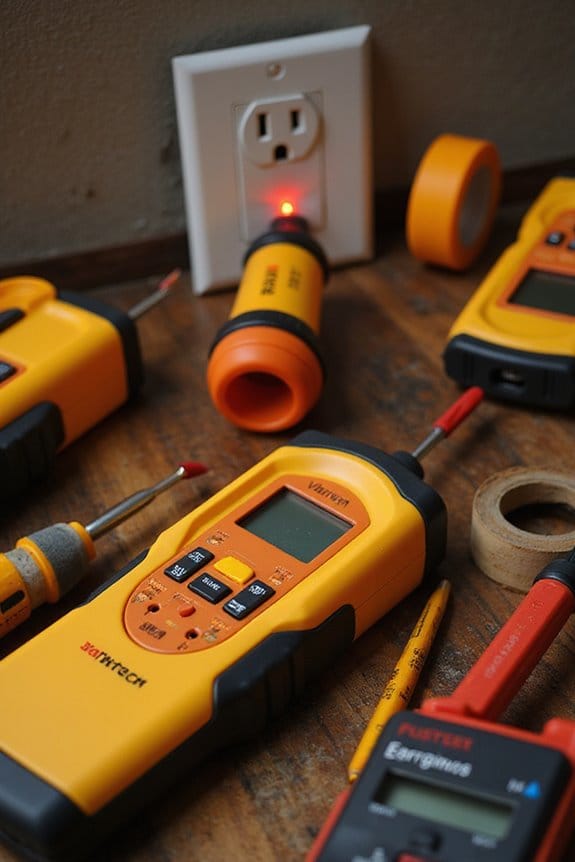
Non-contact voltage testers are among the most handy tools in any electrician’s toolkit. They allow for quick and safe voltage detection without touching live wires. Here’s why I love using them:
- Safety First: They comply with strict safety standards, like IEC 61010, ensuring I can test up to 1000V safely.
- Easy to Use: Just bring it near a wire or outlet, and the glowing LED and beeper will let you know if there’s voltage.
- Versatile: They work in various conditions, even in the dark, thanks to built-in flashlights.
- Portable: Their pen-like design makes them easy to carry around.
Additionally, many models feature adjustable sensitivity settings to help enhance detection accuracy for different environments. Next time you’re verifying live circuits, don’t skip this essential tool. It’s a lifesaver for both pros and DIYers!
Clamp Meters
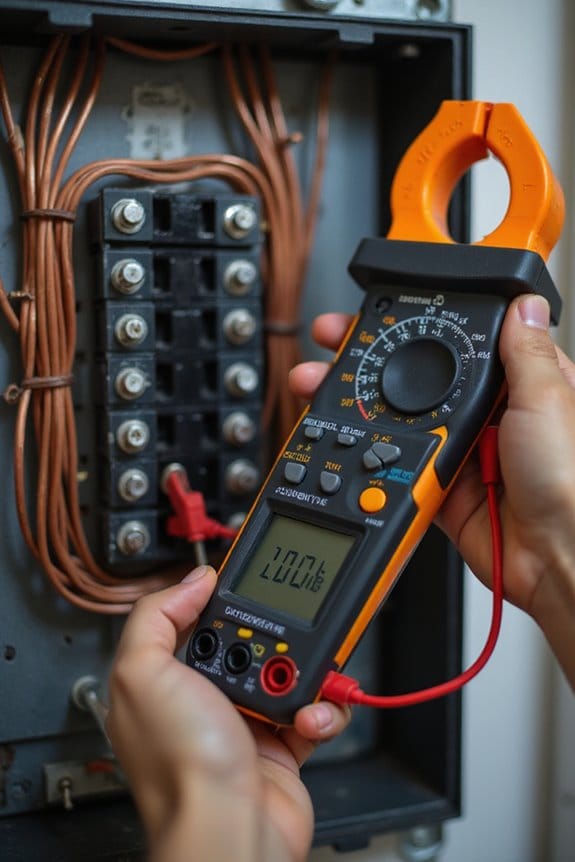
Clamp meters are essential companions for anyone working with electricity, and I can’t imagine my toolkit without one. These handy tools come with various clamp meter features that make them versatile. Here’s why they’re a must-have:
- AC/DC Applications: Many models, like Hall Effect clamp meters, measure both AC and DC currents, perfect for automotive and electronics work.
- True RMS Capability: This guarantees accurate readings, even on non-sinusoidal waveforms.
- Safety: You can measure current without disconnecting circuits, keeping you safe and reducing downtime.
- Ease of Use: They’re compact and simple to operate, making them ideal for both pros and DIYers. Additionally, many clamp meters feature non-contact voltage detection, enhancing safety during use.
Trust me, once you try a clamp meter, you’ll wonder how you got by without one!
Insulation Testers (Megohmmeters)
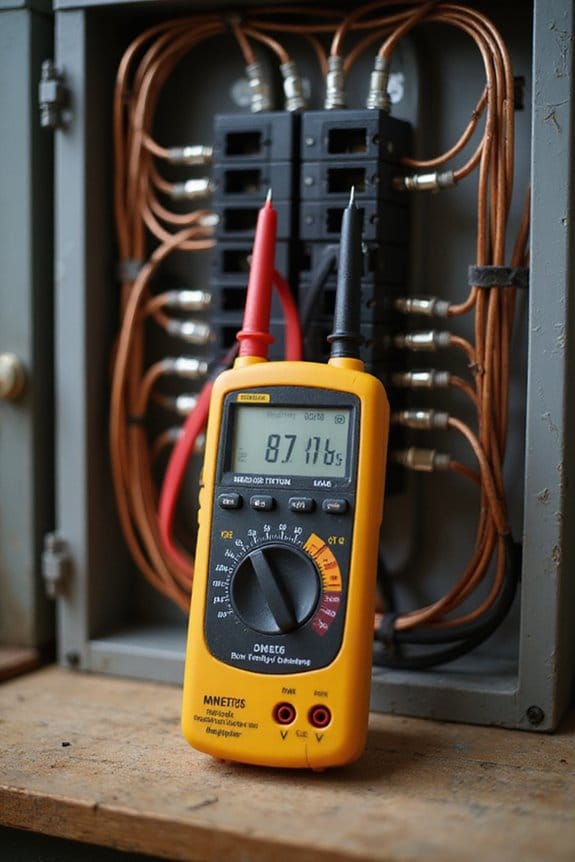
Insulation testers, often affectionately dubbed Meggers, are essential tools for anyone serious about electrical safety. They measure high resistance values in insulators, helping with insulation fault detection. Here’s why you should consider having one:
- High Voltage Testing: They apply high DC voltages—up to 15 kV—to check insulation strength. This makes them much more reliable than standard multimeters.
- Preventive Maintenance: Regular testing helps track insulation degradation in equipment like transformers and motors, potentially preventing costly failures.
- Safety Compliance: They guarantee insulation resistance meets industry standards, so you can sleep soundly knowing your systems are safe. Additionally, using insulation testers aligns with safety ratings like CAT III 600V, ensuring compliance with essential electrical safety standards.
Amperage and Wattage Load Testers
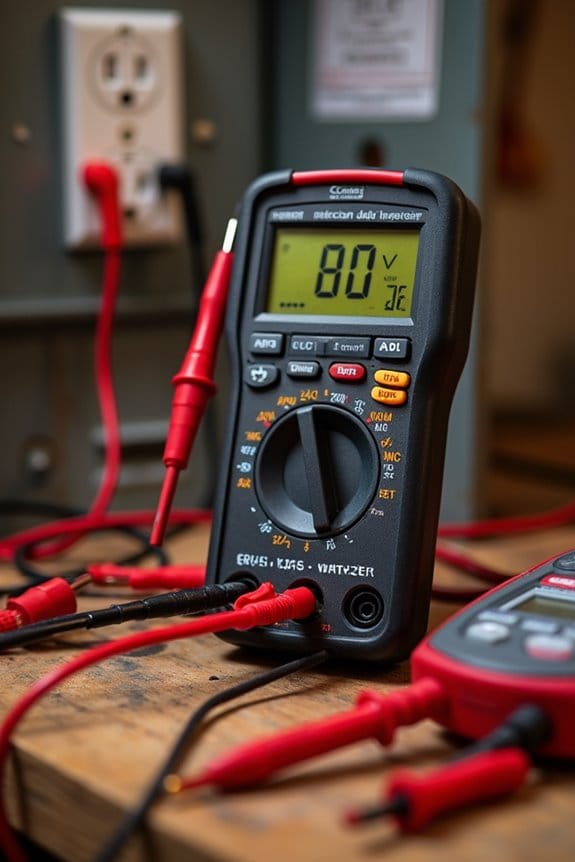
When it comes to ensuring your electrical devices run smoothly, having the right tools is key. Amperage and wattage load testers are essential for checking how much energy your appliances consume. Here’s why you should consider getting one:
- Load Verification: They measure current draw up to 20 amps and power consumption up to 2000 watts, helping you avoid overloading circuits.
- Digital Readouts: Precise monitoring makes it easy to track real-time electrical loads.
- Energy Audits: Perfect for identifying power-hungry devices during routine checks or emergencies.
- User-Friendly: Their handheld design and long cords make them easy to use, even in tight spots. Additionally, user-friendly features like LCD displays and compact designs enhance their usability for various applications.
Power Quality Analyzers
Power quality analyzers are like the detectives of the electrical world, always on the lookout for issues that could disrupt your power supply. They continuously sample AC voltage, helping to spot any pesky voltage disturbances that might cause problems. Here’s what makes them essential:
- Real-Time Data: They measure voltage, current, and power factor, giving you a clear picture of your system’s health.
- Troubleshooting: These analyzers pinpoint sources of disturbances, like voltage drops or flickers.
- Multi-Channel Inputs: You can monitor different circuits simultaneously.
- Portable: Many are handheld, making them easy to use in various settings.
If you want to guarantee your electrical systems run smoothly, investing in a power quality analyzer is a smart move!
Circuit Analyzers
After keeping an eye on power quality with analyzers, it’s time to shift gears and focus on circuit analyzers. These handy tools come with several essential circuit analyzer features that make them invaluable.
- Plug-in Types: Just plug them into an outlet for quick checks.
- Visual Indicators: Analog models use neon lights, while digital ones show detailed readings on LCDs.
- Wiring Fault Detection: They spot issues like open grounds or reverse wiring, helping you avoid nasty surprises.
- GFCI Testing: Some models can also check ground-fault circuit interrupters for safety.
In short, circuit analyzers are compact, easy to use, and can save you time during troubleshooting. Trust me, they’ll become a go-to in your toolkit!
Ground Resistance Testers
Ground resistance testers are essential tools that every electrician should have in their arsenal. These handy devices measure ground resistance with various testing methods, like 2-pole and 3-pole setups, ensuring measurement accuracy. Here are a few key features I appreciate:
- Usability Features: Many testers come with auto-ranging, large displays, and indicators that show when a measurement is stable. No more guessing!
- Power Durability: They’re built for the field, often rated IP54 for dust and water resistance, so they can handle tough environments.
- Practical Applications: Use them to test grounding systems in homes, businesses, and industrial sites—keeping safety in check. Trust me, having a reliable ground resistance tester is worth every penny!
Thermal Imaging Cameras
When it comes to identifying electrical issues, thermal imaging cameras are like having superhero vision on your side. These nifty tools detect infrared energy and turn it into a colorful heat map, revealing heat signatures we can’t see with the naked eye. Here’s why I love them:
- Spotting Hot Spots: They identify high resistance areas that may be trouble down the line.
- Detecting Connections: Loose or corroded connections? Thermal imaging finds them fast.
- Monitoring Components: You’ll catch overheated motors and irregular fuse temperatures in real-time.
- Preventing Fires: Early detection of overheating helps avoid catastrophic failures.
In short, thermal imaging cameras are essential for maintaining safety and reliability in electrical systems. Trust me, they’re worth having in your toolkit!
Frequently Asked Questions
How Do I Choose the Right Electrical Testing Tool for My Needs?
When choosing the right electrical testing tool, I focus on tool features and testing accuracy. It’s essential to match my specific needs with reliable, versatile tools that guarantee I get precise measurements every time.
What Safety Precautions Should I Take When Using Electrical Testing Tools?
When using electrical testing tools, I always wear proper safety gear and stay aware of electrical hazards. It’s essential to inspect equipment, follow safe procedures, and maintain a clean work environment to guarantee my safety.
How Often Should I Calibrate My Electrical Testing Instruments?
You know, keeping my instruments in tip-top shape is key! I usually follow manufacturer guidelines for calibration frequency, ensuring instrument accuracy. Regular checks help avoid pesky inaccuracies that could lead to unexpected surprises down the road.
Can I Use These Tools on Both AC and DC Circuits?
Absolutely, I can use these tools on both AC and DC circuits, thanks to their AC/DC compatibility. This versatility makes my work easier, allowing me to handle various electrical testing tasks with confidence and efficiency.
What Are the Common Signs of a Faulty Electrical Testing Tool?
Have you ever wondered how to spot testing tool malfunctions? I’ve noticed tool performance indicators like incorrect readings, physical damage, or malfunctioning displays can signal it’s time for a thorough inspection or replacement.

